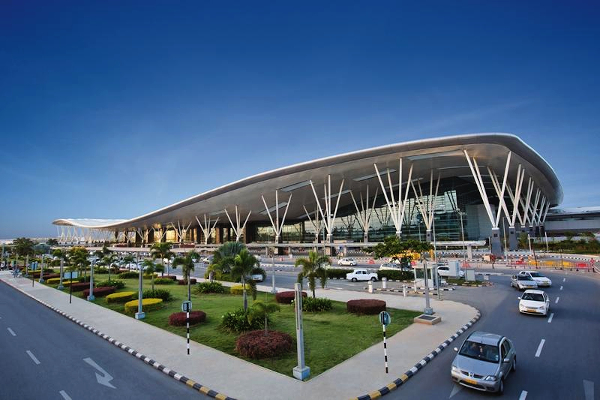Union Minister of state for civil aviation VK Singh told the Lok Sabha on 5 August that as many as six airports in India will soon deploy facial recognition technology to facilitate biometric boarding systems. These airports are now participating in a technology-based pilot study.
According to an official statement, the civil aviation ministry announced a policy on ‘Digi Yatra’ in August 2018 that intends to provide “contactless, seamless, and paperless handling of passengers at airports from the entry gate of the terminal to the boarding point”. Work has been awarded to implement Biometric Boarding System (BBS) in six airports which include Bengaluru, Hyderabad, Kolkata, Pune, Varanasi and Vijayawada, said Singh.
Earlier in July, the operator of Bengaluru International Airport announced that software giant IBM would digitise the airport’s operations to improve travellers’ experiences. In a statement, the Bangalore International Airport Ltd (BIAL), which is a public-private partnership that manages the country’s third busiest airport, said that to digitise the IT network for operating the Kempegowda airport, it has signed into a 10-year agreement with IBM’s global business services unit.
However, in this latest scenario, Singh said that once the trial project at the aforementioned airports is completed, the technology will be extended in a “phased way” across India at all airports. He told Parliament that the Airports Authority of India (AAI) expects to invest over 25,000 crores in the next four to five years to expand or construct existing as well as new terminals at various airports utilising current technologies.
Additionally, Singh said: “Route rationalisation in the Indian airspace is being carried out in coordination with Indian Air Force, using modern air traffic flow management techniques to develop shorter flight routes and lower fuel consumption by airlines.”
He stated in a separate written response that the Regional Connectivity Fund (RCF) fee of 1,904 crores has been received by the centre so far. According to Singh, to support the Regional Connectivity Scheme (RCS), a fee of 5,000 crores is levied on each scheduled flight on particular routes. He added: “Till now…Viability Gap Funding (VGF) of an amount of 1,253 crores has been disbursed.”
Singh agreed to the challenges experienced by travellers when asked if the government is aware that numerous residents whose trip plans were disrupted owing to the Covid-19 pandemic had yet to obtain a refund of credit shell amounts from airlines. He stated that due to the health crisis and the resulting shutdown, aviation travellers had experienced difficulty with flight cancellations and refunds.
In the case of Air India, Singh stated that the airline’s total income fell to 12,138.77 crores in 2020-21, while expenses increased to 18,694.43 crores.
As per the Minister, the Directorate General of Civil Aviation (DGCA) has not defined rules for an aircraft’s life in India. He went on to say that the DGCA does not have a name for old aircraft, but such aircraft are regarded as “airworthy” if they are maintained according to the authorised timetable laid forth by the manufacturer.
He also said that the DGCA is planning an online “examination on-demand” for flying cadets to increase the number of certified pilots in India.
Source : Swarajya Magazine
You may also like
-
Navigating India’s Skill Landscape
-
Trade Connect E-platform For Exports Is Single Window, Fast, Accessible And Transformational: Shri Piyush Goyal
-
India-us Working Together In Areas Like Critical Minerals, Supply Chains And Advanced Technologies: Shri Piyush Goyal
-
Cabinet Approves Health Coverage to All Senior Citizens of the Age 70 Years and Above Irrespective of Income
-
Cabinet Approves PM Electric Drive Revolution in Innovative Vehicle Enhancement (PM E-DRIVE) Scheme With An Outlay of ₹.10,900 Crore
